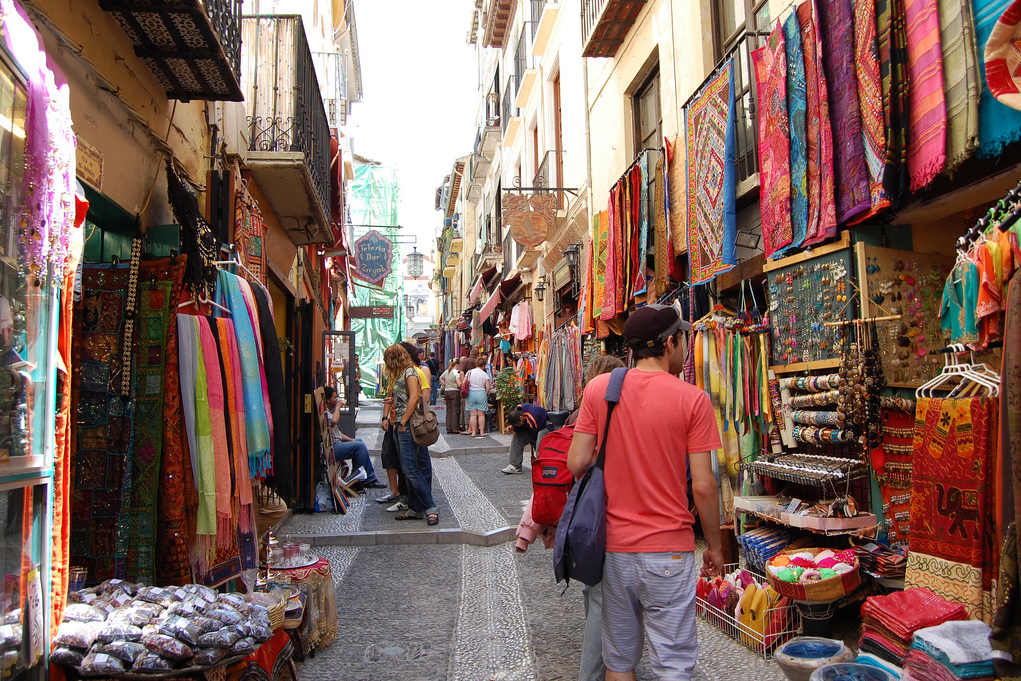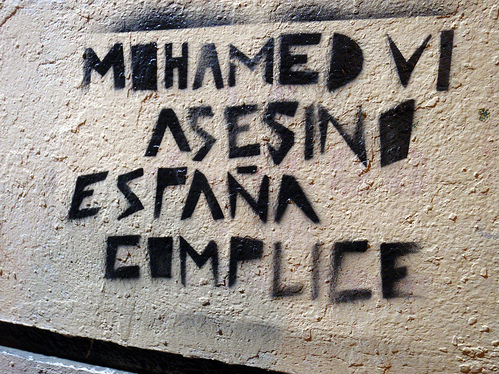SPAIN AND MOROCCO: TENSION AND MIGRATION IN A POST-COLONIAL ERA
 By Narisa SilverContributing WriterThree weeks ago, I began my study abroad excursion in Madrid, Spain. As an International Studies major at UCSD and travel enthusiast, I was excited for the chance to travel and learn more about the many cultures that were a short plane ride away from the capital. Of particular interest to me were not the typical European destinations to the west or north, but rather the North African outpost of the Islamic world to the south of Spain. The polar opposites of Islamic North Africa and Catholic Spain are separated by the Strait of Gibraltar, which spans a mere 8.9 miles between the two continents. When North Africa became a major news item with the outbreak of revolution and political turmoil in Egypt, I felt more inclined to research both the historical and modern relationships between Spain and its southern neighbor, Morocco. I came to learn of a recent history complicated by globalization and neo-colonialism.
By Narisa SilverContributing WriterThree weeks ago, I began my study abroad excursion in Madrid, Spain. As an International Studies major at UCSD and travel enthusiast, I was excited for the chance to travel and learn more about the many cultures that were a short plane ride away from the capital. Of particular interest to me were not the typical European destinations to the west or north, but rather the North African outpost of the Islamic world to the south of Spain. The polar opposites of Islamic North Africa and Catholic Spain are separated by the Strait of Gibraltar, which spans a mere 8.9 miles between the two continents. When North Africa became a major news item with the outbreak of revolution and political turmoil in Egypt, I felt more inclined to research both the historical and modern relationships between Spain and its southern neighbor, Morocco. I came to learn of a recent history complicated by globalization and neo-colonialism.
 My short time here has led me to believe that many native Spaniards have developed stereotypes about the many immigrant groups that have entered Spain en masse since the end of the Franco dictatorship in the late '70s. With an estimated 758,000 Moroccans currently living in Spain, they make up the second largest group of immigrants in the country (about 12.7 percent of Spain's foregin population) and about 1.4 percent of Spain's entire population. Many made the short migration trek to seek a better life within the European Union. However, most Moroccans in Spain are confined to low-income occupations, and Moroccan neighborhoods are notorious for high crime and poverty. Perhaps most interestingly, many of these Moroccans were already Spanish citizens even before they set foot on the Iberian Peninsula. Much of northern Morocco was colonized under Spanish rule until 1956, and Spain actually still governs two major cities on the Moroccan coast, Ceuta and Melilla. Because of Morocco's declining economy and strict government, these two cities declared autonomy and voluntarily became part of Spain in 1995. Thus, citizens of the two cities gained Spanish citizenship and were able to migrate throughout the European Union and enjoy EU benefits. This strange case of voluntary colonialism is not surprising upon a closer examination of the corruption within the royal government of Morocco. Its close trade relationships with Western nations are weakened by continued allegations of human rights abuses and financial corruption on the part of King Mohammed VI.Conflict in the Mediterranean is not a new phenomenon. It can be witnessed both in modern Spain and Morocco, and in the complex history of expulsion, colonization and conquest between Morocco and its European neighbors. Perhaps aid from EU nations to help strengthen Islamic states would be a positive form of involvement. For now, the exodus continues from Morocco into Spain, led by thousands seeking financial security and a better life.Main photo courtesy of Blakeman_Hodges.
My short time here has led me to believe that many native Spaniards have developed stereotypes about the many immigrant groups that have entered Spain en masse since the end of the Franco dictatorship in the late '70s. With an estimated 758,000 Moroccans currently living in Spain, they make up the second largest group of immigrants in the country (about 12.7 percent of Spain's foregin population) and about 1.4 percent of Spain's entire population. Many made the short migration trek to seek a better life within the European Union. However, most Moroccans in Spain are confined to low-income occupations, and Moroccan neighborhoods are notorious for high crime and poverty. Perhaps most interestingly, many of these Moroccans were already Spanish citizens even before they set foot on the Iberian Peninsula. Much of northern Morocco was colonized under Spanish rule until 1956, and Spain actually still governs two major cities on the Moroccan coast, Ceuta and Melilla. Because of Morocco's declining economy and strict government, these two cities declared autonomy and voluntarily became part of Spain in 1995. Thus, citizens of the two cities gained Spanish citizenship and were able to migrate throughout the European Union and enjoy EU benefits. This strange case of voluntary colonialism is not surprising upon a closer examination of the corruption within the royal government of Morocco. Its close trade relationships with Western nations are weakened by continued allegations of human rights abuses and financial corruption on the part of King Mohammed VI.Conflict in the Mediterranean is not a new phenomenon. It can be witnessed both in modern Spain and Morocco, and in the complex history of expulsion, colonization and conquest between Morocco and its European neighbors. Perhaps aid from EU nations to help strengthen Islamic states would be a positive form of involvement. For now, the exodus continues from Morocco into Spain, led by thousands seeking financial security and a better life.Main photo courtesy of Blakeman_Hodges.